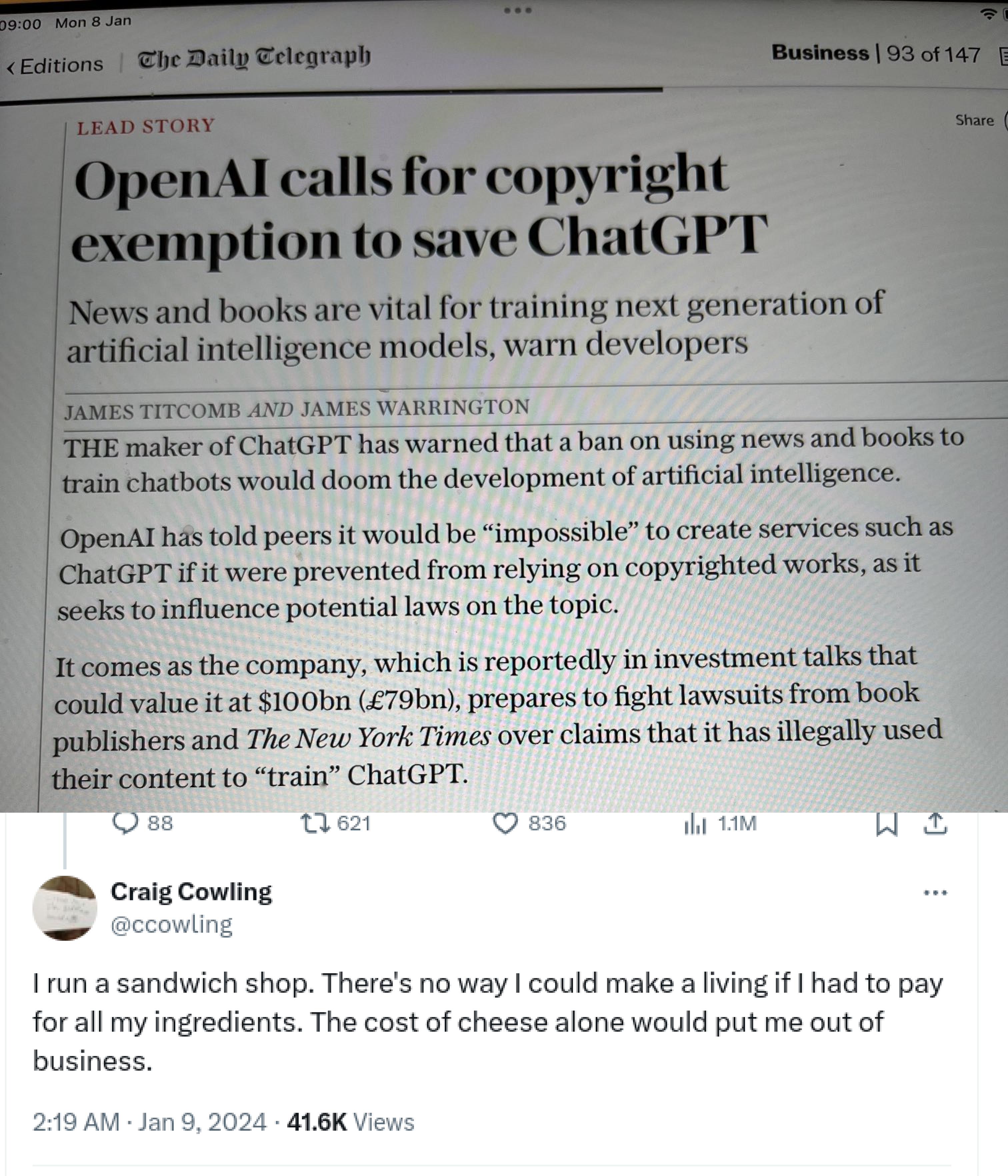Those claiming AI training on copyrighted works is “theft” misunderstand key aspects of copyright law and AI technology. Copyright protects specific expressions of ideas, not the ideas themselves. When AI systems ingest copyrighted works, they’re extracting general patterns and concepts - the “Bob Dylan-ness” or “Hemingway-ness” - not copying specific text or images.
This process is akin to how humans learn by reading widely and absorbing styles and techniques, rather than memorizing and reproducing exact passages. The AI discards the original text, keeping only abstract representations in “vector space”. When generating new content, the AI isn’t recreating copyrighted works, but producing new expressions inspired by the concepts it’s learned.
This is fundamentally different from copying a book or song. It’s more like the long-standing artistic tradition of being influenced by others’ work. The law has always recognized that ideas themselves can’t be owned - only particular expressions of them.
Moreover, there’s precedent for this kind of use being considered “transformative” and thus fair use. The Google Books project, which scanned millions of books to create a searchable index, was ruled legal despite protests from authors and publishers. AI training is arguably even more transformative.
While it’s understandable that creators feel uneasy about this new technology, labeling it “theft” is both legally and technically inaccurate. We may need new ways to support and compensate creators in the AI age, but that doesn’t make the current use of copyrighted works for AI training illegal or unethical.
For those interested, this argument is nicely laid out by Damien Riehl in FLOSS Weekly episode 744. https://twit.tv/shows/floss-weekly/episodes/744



This is an inaccurate understanding of what’s going on. Under the hood is a neutral network with weights and biases, not a database of copyrighted work. That neutral network was trained on a HEAVILY filtered training set (as mentioned above, 45 terabytes was reduced to 570 GB for GPT3). Getting it to bug out and generate full sections of training data from its neutral network is a fun parlor trick, but you’re not going to use it to pirate a book. People do that the old fashioned way by just adding type:pdf to their common web search.
Again: nobody is complaining that you can make AI spit out their training data because AI is the only source of that training data. That is not the issue and nobody cares about AI as a delivery source of pirated material. The issue is that next to the transformed output, the not-transformed input is being in use in a commercial product.
Are you only talking about the word repetition glitch?